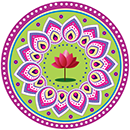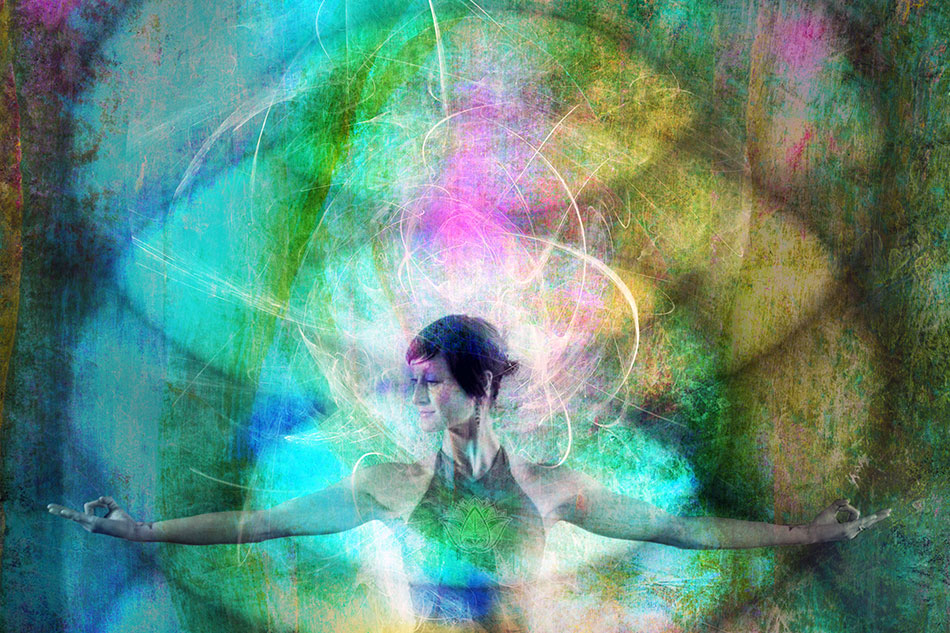The psychedelic properties of hallucinogenic cactus, plants and mushrooms have been used for centuries by indigenous cultures to induce expanded states of consciousness and spiritual experiences. The use of psychedelic drugs to facilitate spiritual or religious enlightenment has been a human ritual throughout recorded history and has been well documented as a significant aspect of shamanistic tradition.
In recent years, the scientific study of meditation and psychedelic drugs has seen remarkable developments. The increased focus on meditation in cognitive neuroscience has led to a cross-cultural classification of standard meditation styles validated by functional and structural neuroanatomical data.
Meanwhile, the renaissance of psychedelic research has shed light on the neurophysiology of altered states of consciousness induced by classical psychedelics, such as psilocybin and LSD, whose effects are mainly mediated by agonism of serotonin receptors. The discovery of how psychedelic substances affect the brain has led to groundbreaking research in the treatment of anxiety and depressive disorders.
In 2019, the world of psychedelic research expanded significantly along with the consciousness of its proponents. For one, Johns Hopkins University launched a center for psychedelic research with $17 million in donations solely from private donors, the first of its kind in the U.S.. The establishment of the Center for Psychedelic and Consciousness Research at Johns Hopkins Medicine signaled a new era of research in therapeutics and the mind. It came on the heels of the U.S. Food and Drug Administration’s (FDA) announcement earlier the same year that it had approved esketamine, a substance chemically-related to the party drug ketamine, as a nasal spray to treat depression. Immediately, people began reporting success using esketamine off-label as a treatment for anxiety.
Psychedelic Research
It had already been a pretty good year for psychedelic research. In October 2018, the FDA granted a “breakthrough therapy” designation to Compass Pathways, a research company, for its use of psilocybin in addressing treatment-resistant depression (TRD). Psilocybin has also been found to be beneficial in treating anxiety disorders.
The FDA’s actions have long-reaching effects. For example, the cities of Oakland, California and Denver, Colorado, voted to decriminalize psilocybin in 2019 and other cities and states are expected to do the same. Psilocybin may follow the same course as cannabis did 20 years ago, but for now, it’s not available outside clinical trials.
The main psychedelics currently being examined for specific therapeutic purposes are psilocybin, LSD, MDMA, ketamine, and ayahuasca. Early studies indicate that these substances could have a powerful capacity to treat mental health issues that have resisted more traditional drugs, specifically anxiety and depressive disorders.
The potential of psychedelics for treating mental illnesses is enormous. Studies have shown promise for psychedelics as treatments for a wide range of issues including depression, anxiety, OCD, PTSD, and addiction. These mental health problems can be resistant to conventional treatments because they vary based on brain chemistry, personality and life experience. In these cases, psychedelics are thought to help by rebooting the brain.
Researchers have described the use of psychedelics in treatment as a way of restarting the brain; a process where everything gets reset and starts interacting in a novel way. It’s been suggested that the psychoactive component in some psychedelic drugs rebalances brain chemicals to a more therapeutic setting.
Consciousness and Psychedelics
Psychoactives were principal in the development of human society and there is historical evidence of their cultural use over the past 5,000 years. Ronald Siegel, a psychopharmacologist and research professor in UCLA, suggested that the human need to intoxicate is so intense that it is the fourth most primal instinct after hunger, thirst and sex. He asserted that—because virtually all cultures have historically used psychoactive substances—the urge to take mind-altering drugs is inherently programmed into our biology as a natural drive. Other scholars have maintained that psychoactive alkaloids have played an important role in the evolution of human consciousness. Substances with alkaloids are wide-ranging, from caffeine and nicotine to psilocybin and ibogaine. Preparations of plants containing alkaloids and their extracts have long been used as psychoactive substances.
References
Hofmann, Albert. (2009). LSD My Problem Child: Reflections on Sacred Drugs, Mysticism and Science. Sarasota, FL: MAPS.
HUB. Johns Hopkins University. (2019). Johns Hopkins launches center for psychedelic research. http://hub.jhu.edu/2019/09/04/hopkins-launches-psychedelic-center/
Huxley A. (1954). The Doors of Perception. New York, NY: Harper & Brothers.
Johnson MW, Griffiths RR, Hendricks PS, Henningfield JE. (2018). The abuse potential of medical psilocybin according to the 8 factors of the Controlled Substances Act. Neuropharmacology, 142, 143-166.
Koch C, Massimini M, Boly M, Tononi G. (2016). Neural correlates of consciousness: progress and problems. Nature Reviews Neuroscience, 17, 307–321.
Kuypers KPC, et al. (2019). Microdosing psychedelics: More questions than answers? An overview and suggestions for future research. J Psychopharmacol, 33(9), 1039–1057.
Leary Timothy, Metzner, Ralph, Alpert, Richard. (1964). The Psychedelic Experience: A manual based on the Tibetan book of the dead. Berkeley, CA: University Books.

About This Excerpt
The above excerpt is reprinted from Dr. Randi Fredricks’ book Complementary and Alternative Treatments for Anxiety. No part of this article may be reproduced in any form or by any electronic or mechanical means, including information storage and retrieval systems.
Disclaimer: This article is not intended to provide medical advice, diagnosis or treatment. Views expressed here do not necessarily reflect those of Dr. Randi Fredricks as articles often present the published results of the research of other professionals. Copyright © 2020.
